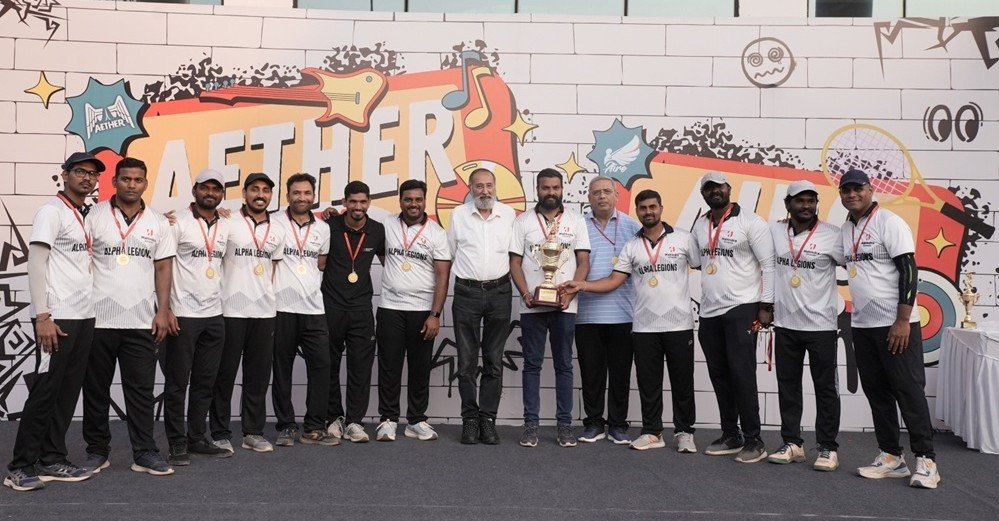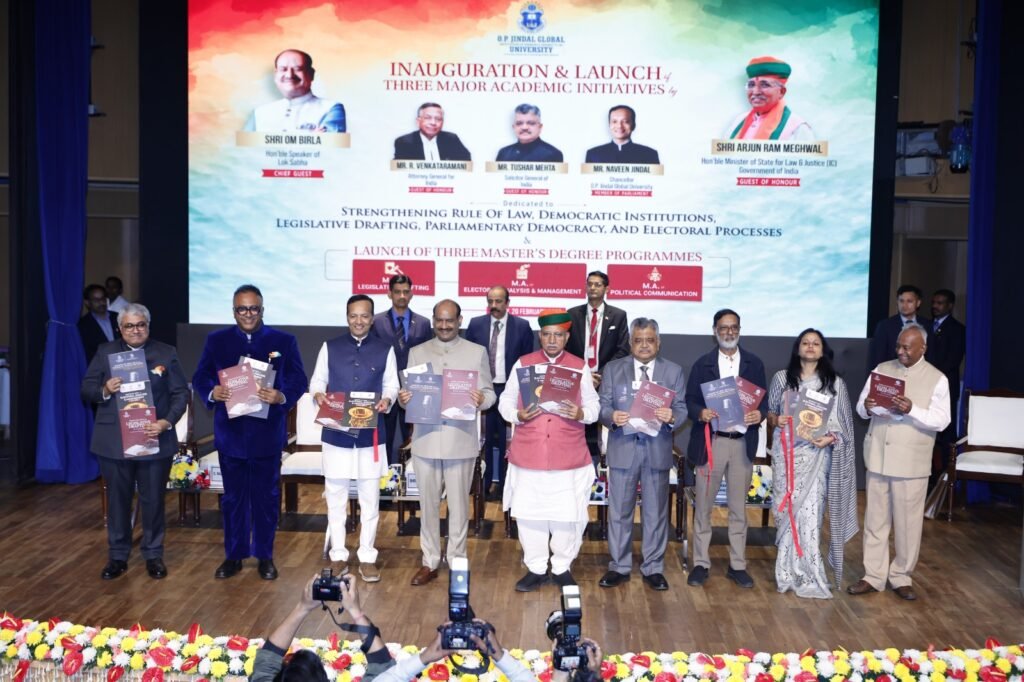- Prof Chris Day, Vice-Chancellor and President of Newcastle University, shares there’s an increase in interest among Indian students across the UK for liberal arts, fintech, environmental science, clean energy, and psychology courses.
Prof Chris Day, Vice-Chancellor and President of Newcastle University, United Kingdom was in India last month to discuss new partnerships with the Indian institutes. In an email interaction, he tells indianexpress.com, about their plans to set up a campus in India, what courses Indians prefer to study in the UK universities, and the competition they are facing from other European nations to attract international students.
Moreover, he has announced a new scholarship for Indian students enrolling at Newcastle University in September 2025. Some excerpts from the interview:
Q. Four UK universities are opening their campuses in India, and a few foreign institutes have collaborated with Indian varsities. Should we expect some major announcements from Newcastle University?
Chris Day: We are in the very early stages of exploring new education partnerships in India. This might include joint degree programs, study abroad opportunities for Newcastle students, and, potentially, an Indian campus established with a local partner.
Q. The UK has been the top choice for Indian students aiming for higher education. So, why are UK varsities opening campuses in India?
Day: Education transcends borders and, by working together with bright students from around the world, we become better at tackling the big global issues. At Newcastle University, expanding our transnational education is central to our education and global strategies, supporting our commitment to collaborate across and for the world, working in local and global partnerships to achieve more collectively than we can alone.
Q. How many Indian students are studying at Newcastle University and what subjects do they prefer? Please share the data.
Day: In 2024, Newcastle University saw Indian students enrolling in over 110 different courses. For the September 2024 entry, our most popular programs for Indian students at the postgraduate level were in business, finance, and data science subjects.
Q. While STEM rules international students’ choice, what are the future/ emerging courses?
Day: We are seeing increased interest across the UK for liberal arts, fintech, environmental science, clean energy, and psychology to name a few.
Q. Office for Students (OfS) recent analysis shows a 20.4 per cent drop in Indian student numbers – down from 1,39,914 to 1,11,329. Do you think the stricter visa norms/ policies for international students will affect the choices of Indians?
Day: The UK has long been a preferred destination for Indian students due to its world-class education system, strong career prospects, and welcoming academic environment. We are deeply committed to fostering a diverse and inclusive international student community, and we highly value the contributions of Indian students to our academic and cultural environment. Students from India, and around the world, are an essential part of life in Newcastle – each year, the city welcomes thousands of students from across the world to study here. They enrich the region in many ways and help us deliver global research impact.
At Newcastle University, we are actively working to support our Indian students by ensuring they receive clear guidance on visa processes and career opportunities. We offer a range of scholarships to support the brightest and best students to come and study with us.
Students who have been offered a place to study on an eligible undergraduate degree course at the University’s Newcastle city centre campus for the 2025/26 academic year are eligible for the VC Excellence Scholarships and the Vice-Chancellor’s International Scholarships.
We recently launched the Newcastle-India Leadership and Innovation Scholarship for 2025 entry. Covering full tuition fees, the 10 scholarship awards are for applicants from India who apply to commence full-time, one-year Master’s studies on an eligible program.
Q. What are the average tuition fees of international students? How does the varsity provide placement to Indian students?
Day: Newcastle is one of the most affordable cities in the UK and has been rated as the third best student city in England (QS Ranking 2025). The average living costs for a student in the UK is £1,112.50 per month. Newcastle’s lowest-priced accommodation is approximately £500, for city centre accommodation with bills included, which offers great value for money.
The fees for international students vary by different degree programs and the year for which the student is applying. For international students, the average tuition fees range from £25,000-30,000 approximately. These fees are reduced when scholarships are applied.
As a research-intensive University, the connections between our education and research have always been at the core of our provision. This means that encounters with our world-leading research and the leading edge of industry and practice are at the heart of our curriculum and learning experiences. Our graduates leave us with the skills, knowledge, and experiences that ensure they are fit for their future and the world in which they will live and work.
The Careers Service organises and facilitates graduate-level work experience for current students with a local business or University department through the NCL Internship scheme, while Jobs On Campus (JobsOC) offers students the opportunity to work on campus in a variety of different temporary roles.
Our International Student Pathway can help international students find out where to gain experience, learn how to make their CV stand out, and explore their career options within or outside the UK after they graduate.
START UP is Newcastle University’s support for students and recent graduates looking to become self-employed and start new businesses. Through START UP, students and graduates benefit from advice and support including confidential one-to-one coaching and tailored business guidance, skills development, equity-free grant funding, co-working space and other opportunities. This support is reflected in the latest Higher Education Business and Community Interaction Survey (HEBCIS), and I’m delighted that we were placed fourth in the UK based on turnover and ninth in the UK based on graduate investment.
Newcastle University Students’ Union also has a big part to play in encouraging students to foster their business acuity, entrepreneurship or creativity with opportunities to join over 100 different clubs and societies: from economics to running the student radio station.
Q. A few thousand students from India register to study medicine abroad every year – Russia and China are among the popular nations. However, fewer go to the UK because of its high fees. Do you think UK varsities should ease the process and fees for Indians?
Day: We remain committed to supporting global talent and we welcome students from India and beyond who study medicine in the UK. Medical and dental school admissions in the UK are regulated through intake targets set by the UK Government, which place limits on the number of both domestic and international students that each university can enrol annually.
Q. How would you assess Indian students over the decades – starting from your graduation time to now as a vice-chancellor? What are their strengths and weaknesses?
Day: We are privileged to continue welcoming the brightest and best students from India. Students from India are talented, dedicated, and hard-working. They are recognised for their academic excellence and go on to great careers and personal achievements. We have over 3,500 Indian alumni making their mark in the world. Students have gone on to career success with employers such as Siemens, Dyson, IBM, PwC, Deloitte, EY and Accenture.
Our graduates include Rakshit Jagdale (MBA 2002), MD at Amrut Distilleries, and Pranav Anam (Genetics, BSc 2005), Founder of The Gene Box. Our alumna, Professor Beena Koshy, has been named as one of the 75 young Indian achievers by NISAU UK and the British Council in 2022-23.



